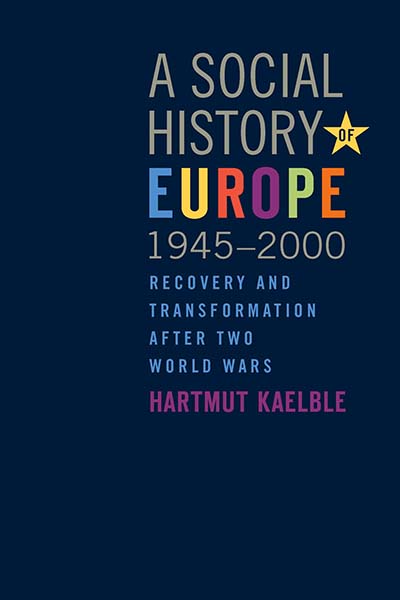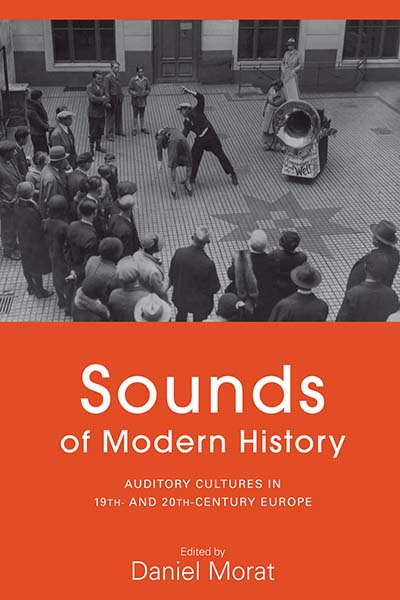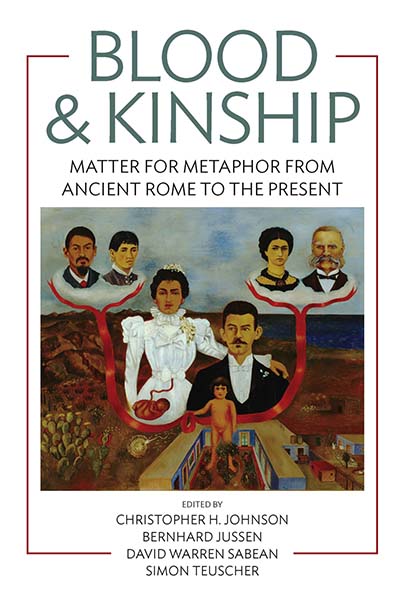
See Related
History JournalsEmail Newsletters
Sign up for our email newsletters to get customized updates on new Berghahn publications.
A Social History of Europe, 1945-2000
Recovery and Transformation after Two World Wars
Hartmut Kaelble
Translated from the German by Liesel Tarquini
344 pages, 22 figs & tables, bibliog., index
ISBN 978-1-84545-643-6 $135.00/£104.00 / Hb / Published (January 2013)
ISBN 978-0-85745-377-8 $34.95/£27.95 / Pb / Published (January 2013)
Reviews
“A sweeping, fact-filled analysis, this well-researched survey can serve as text and reference work with its graphs and very selective bibliography.” · Choice
“As Kaelble stresses, this is not simply a social history from the point of view of social classes. Going beyond this abstraction, it covers family, work, consumption, values, religiosity and urban as well as rural life. Given that it also includes social meanings, social symbols, rites and myths, it is in certain respects nearly a cultural history, while some chapters could fit into the framework of political history… All in all, this book is a great achievement, from which the reader can learn a lot… [It] is well written and highly valuable as a source of knowledge about Europe in the second half of the twentieth century.” · European Review of History—Revue européenne d’histoire
“The series of essays in this book provide readers of every ilk with a solid overview of European social history, and the factors that caused it to change over the course of the second half of the 20th-century. This book will prove invaluable to scholars working in all fields of modern European history, and it will aid politicians, social activists, and others, plan for the future by learning from the past. In short, A Social History of Europe 1945-2000is destined to be a classroom standard, and it deserves a place in every library.” · History in Review
“Without a doubt, this book offers also for the general reader a fascinating journey of discovery through Europe, which shows surprising commonalities on the one hand and illuminating differences on the other.” · Frankfurter Allgemeine Zeitung
“…with this book, Hartmut Kaelble has written a work that will impact political as well as scholarly debates for a long time to come.” · Der Tagesspiegel
“Kaelble’s book offers rich and brilliantly analyzed material in a retrospective view - a look back before Europe takes the next step into the future.” · Financial Times Germany
“This book could not be more timely…Students of contemporary history will soon include this book among those standard works that are a must-read. But also politicians and the large number of Euroskeptics would be well advised to study it closely.” · Neue Zürcher Zeitung
Description
Since 1945 Europe has experienced many periods of turmoil and conflict and as many moments of peace and integration: from the devastation felt in the aftermath of World War II to the recovery in the 1950s and 1960s; to the new challenges in the 1970s and 1980s when neoliberal policies led to fundamental social and economic changes, marked by the effects of the oil shock and widespread unemployment; and then 1989 and after when the existing world order experienced new convulsions. In this brilliant and comprehensive work, the author, one of the best known social historians of Europe, discusses a wide range of subjects, not shying away from controversial topics: family structure, work, consumption, values, migration, inequality, elites, civil society, social movements, media, welfare state, education, and urban policies. He focuses on the fundamental changes European societies underwent in the second half of the twentieth century but also explores what divides Europeans, what unites them, and what sets them apart from the rest of the world. This major historical work will be an important and highly sought-after addition for library collections as well as an important volume for course adoptions.
Hartmut Kaelble has been Professor Emeritus at Humboldt University in Berlin since 2009. From 1971–1991, he was Professor of Social History at Free University Berlin and from 1991–2008 at Humboldt University. He has been a visiting professor at Harvard University, St. Antony’s College Oxford, Maison des Sciences le l’Homme (Paris), EHESS and Sorbonne (Paris I). His most recent book is History of Europe 1945–1989 (Beck 2011), and he has also published widely on comparative history, history of Franco-German relations, history of European democracy during the 19th and 20th centuries, the history of Europe since 1945, and also the history of European society, European identity, and European public spheres.




